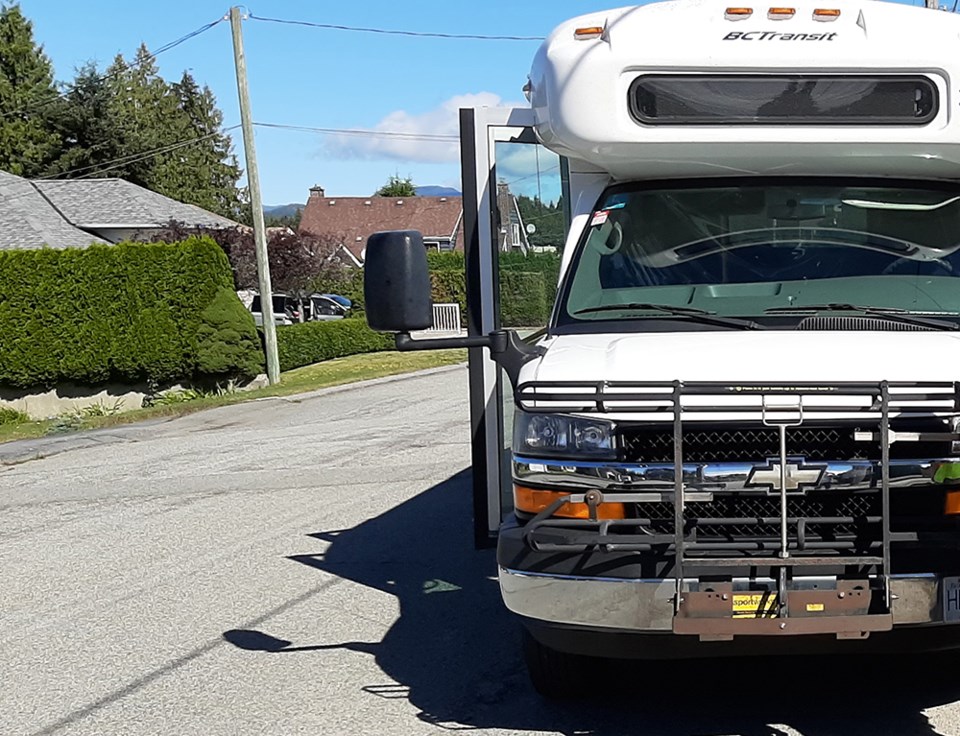qathet Regional District’s finance committee is recommending the regional board authorize the 2023-2024 BC Transit annual operating agreement, and that it be signed.
At the June 7 finance committee meeting, BC Transit senior manager, government relations, Bob Ringma provided directors with an overview of the regional district’s transit system. He said across the province, BC Transit is tracking well in its recovery from COVID-19, when ridership was down.
“Across the province we are averaging between 90 and 100 per cent of pre-COVID-19 ridership levels,” said Ringma.
Looking at the rural transit system in the qathet region, there are similar trends, according to Ringma. Ridership dropped in 2020 and rebounded a little in 2021. He said in 2022, ridership actually surpassed 2019 numbers in the summer and 2023 has started out even higher than 2022, with some peaks exceeding pre-COVID-19 levels, which “is encouraging.”
“We are anticipating seeing continued return of ridership and revenue in Powell River and in the rural paratransit system, which is a good thing,” said Ringma. “This is very similar to the trends we are seeing across the province. All indications are that the system has made a nice comeback and there is opportunity for us to continue to grow the service.”
Ringma said the BC Transit system is a shared partnership between the province, BC Transit and its local government partners in an effort to provide transit services in the communities where it operates. He said everything has to come through local governments for approval.
Under the shared services model, there is a funding formula through the BC Transit Act. Ringma said the rural paratransit system has a provincial share of the funding for that system which is 46.69 per cent, with the local government picking up the remaining 53.31 per cent. All the revenue that comes into the transit system comes back to local governments to offset costs, according to Ringma. Revenue from advertising, after costs have been met, is also turned back to local governments.
Ringma provided a financial update for paratransit for the 2023-2024 budget. Projected revenue is $14,726. Total costs for the service come to $374,179.
The net municipal share of costs is $152,422 and BC Transit’s share of costs is $194,067. Ringma said that total operating cost increases from last year’s budget are due to inflationary effects and fuel was a large part of the increase.
“It looks like fuel costs have gone up almost 50 per cent,” said Ringma.
He then outlined the new electronic fare collection service that will be coming into play across the province. It will replace the current on-bus technology that is getting “quite antiquated,” according to Ringma.
“This new system will definitely better meet the expectations of our riders and provide additional options for our riders in terms of how they can pay and the convenience of how they can pay,” said Ringma. “We will still take cash, but this is going to provide additional options for people to access transit in an easier fashion.”
New components will include a mobile app and a reloadable fare card. Later on, in the second phase, people will be able to tap with their credit or debit cards for fare payment, said Ringma. Rollout of the first phase will be happening this summer.
City of Powell River director Cindy Elliott asked about fuel cost increases. She asked what the transit system spends on fuel and what the savings would be with electric buses.
Ringma said the total fuel cost is projected to be $28,000 for 2023-2024. In terms of electrification, there would be fuel cost savings, but charging infrastructure would have to be set up and the actual cost of the buses is about double that of buses using fossil fuels, he added.
The finance committee voted to send the agreement to the regional board for approval.



